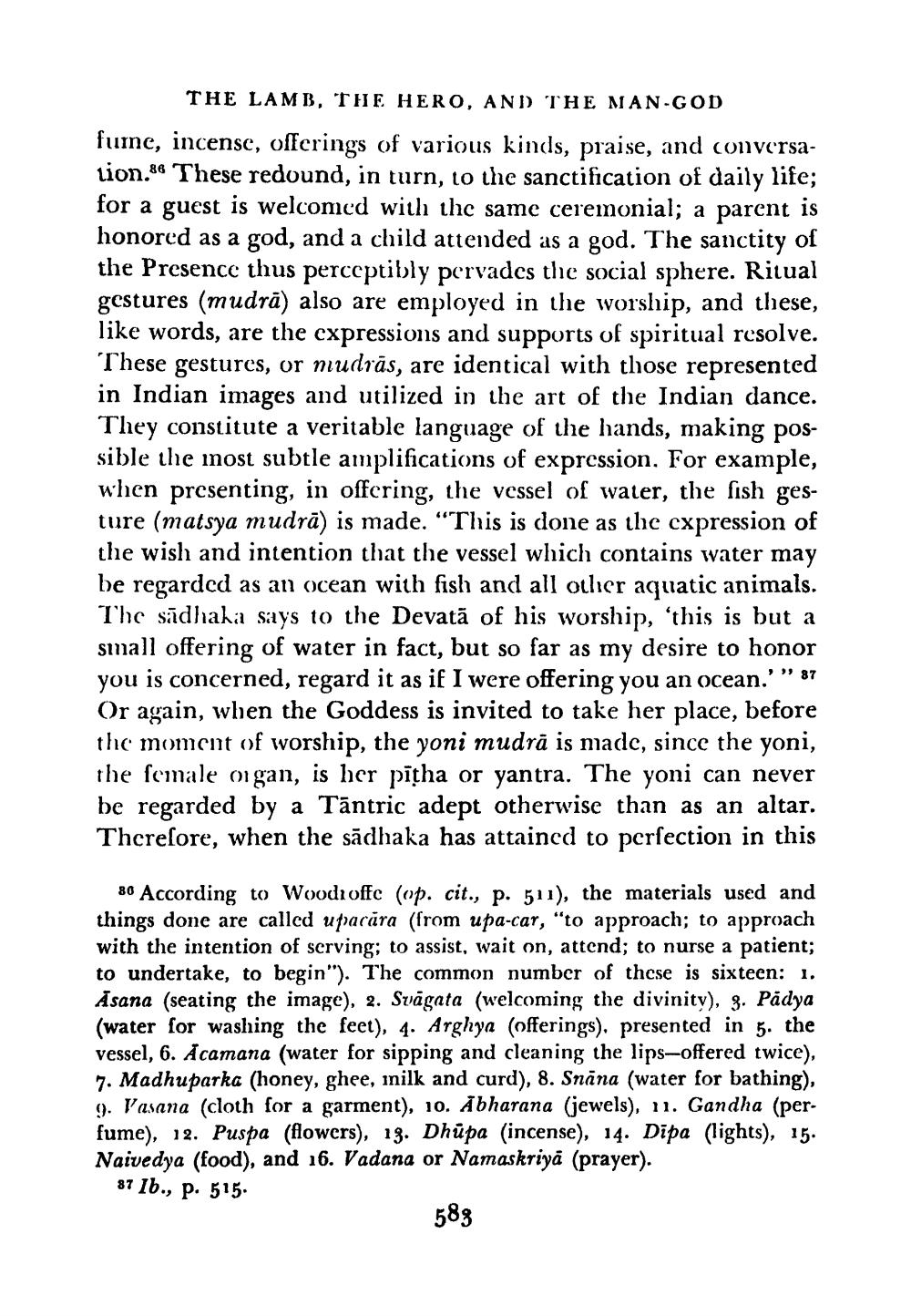________________
THE LAMB, THE HERO, AND THE MAN-GOD
fume, incense, offerings of various kinds, praise, and conversalion.86 These redound, in turn, to the sanctification of daily life; for a guest is welcomed with the same ceremonial; a parent is honored as a god, and a child attended as a god. The sanctity of the Presence thus perceptibly pervades the social sphere. Ritual gestures (mudrā) also are employed in the worship, and these, like words, are the expressions and supports of spiritual resolve. These gestures, or mudrās, are identical with those represented in Indian images and utilized in the art of the Indian dance. They constitute a veritable language of the hands, making possible the most subtle amplifications of expression. For example, when presenting, in offering, the vessel of water, the fish gesture (matsya mudrā) is made. "This is done as the expression of the wish and intention that the vessel which contains water may be regarded as an ocean with fish and all other aquatic animals. The sādhaha says to the Devatā of his worship, this is but a small offering of water in fact, but so far as my desire to honor you is concerned, regard it as if I were offering you an ocean.'” 87 Or again, when the Goddess is invited to take her place, before the moment of worship, the yoni mudrā is made, since the yoni, the female organ, is her pītha or yantra. The yoni can never be regarded by a Tāntric adept otherwise than as an altar. Therefore, when the sādhaka has attained to perfection in this
80 According to Woodroffc (op. cit., p. 511), the materials used and things done are called upacara (from upa-car, "to approach; to approach with the intention of serving; to assist, wait on, attend; to nurse a patient; to undertake, to begin"). The common number of these is sixteen: 1. Ásana (seating the image), 2. Svägata (welcoming the divinity), 3. Pädya (water for washing the feet), 4. Arghya (offerings), presented in 5. the vessel, 6. Acamana (water for sipping and cleaning the lips-offered twice), 7. Madhuparka (honey, ghee, inilk and curd), 8. Snāna (water for bathing), 9. Vasana (cloth for a garment), 10. Abharana (jewels), 11. Gandha (perfume), 12. Puspa (flowers), 13. Dhüpa (incense), 14. Dīpa (lights), 15. Naivedya (food), and 16. Vadana or Namaskriya (prayer). 87 Ib., p. 515.
583




